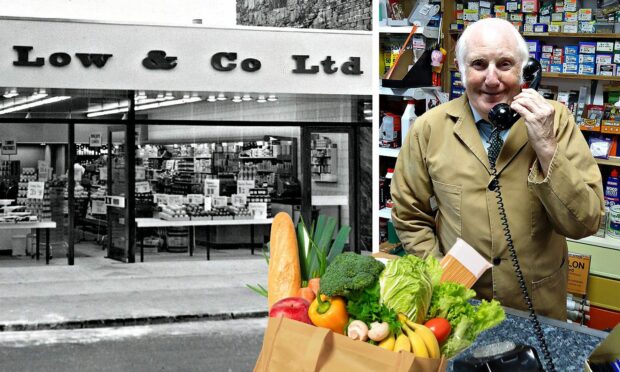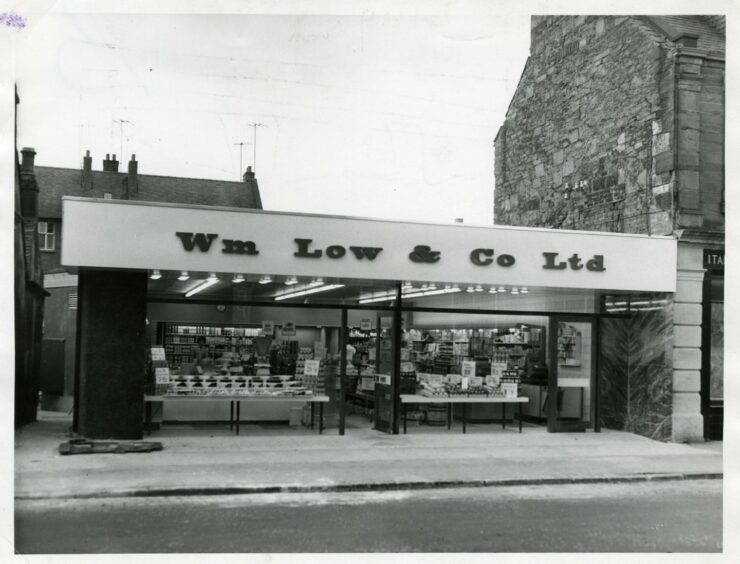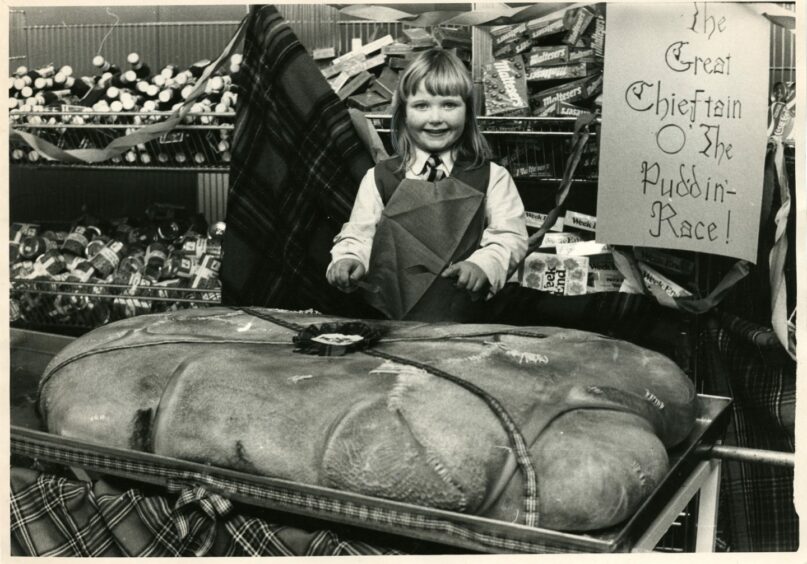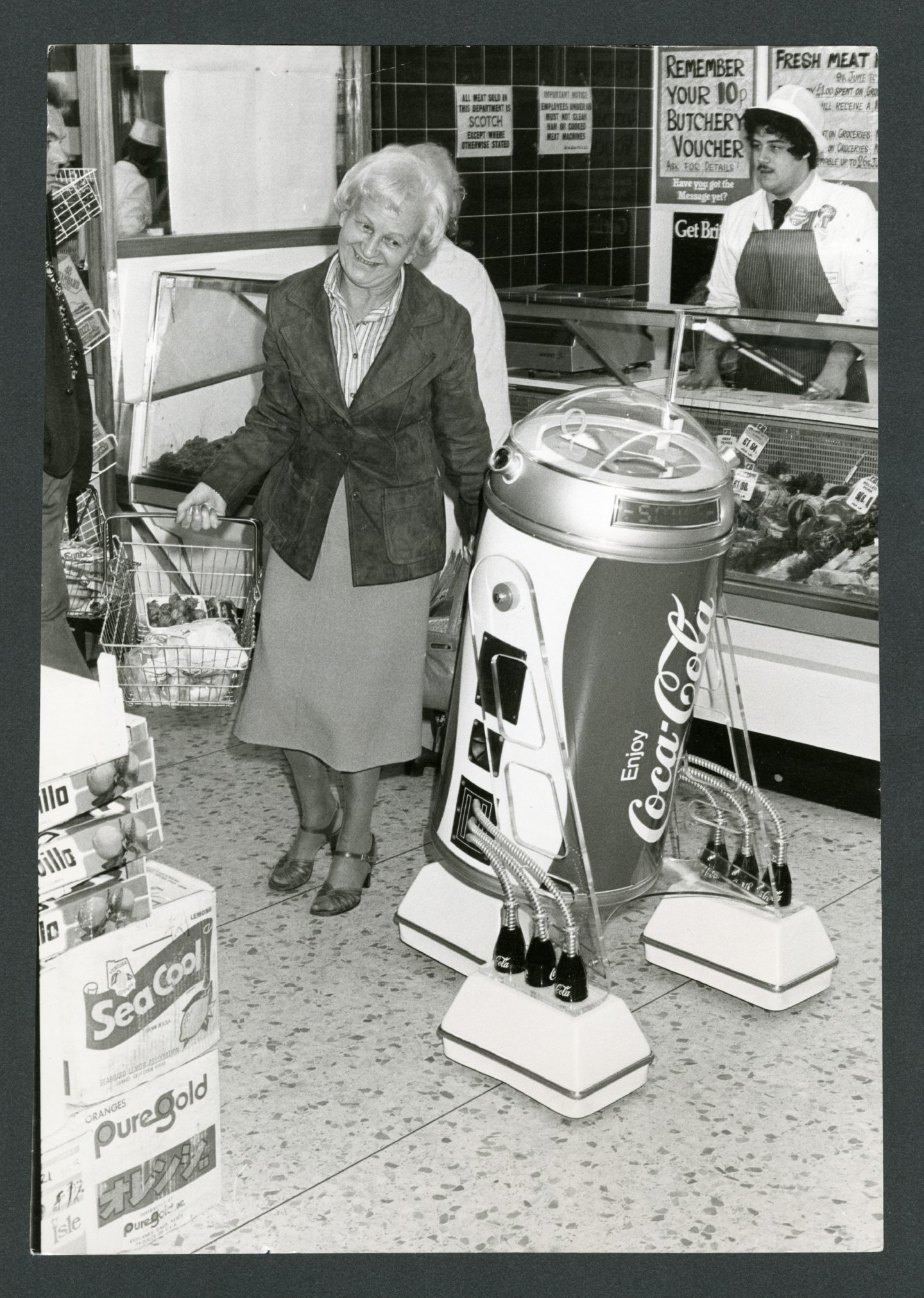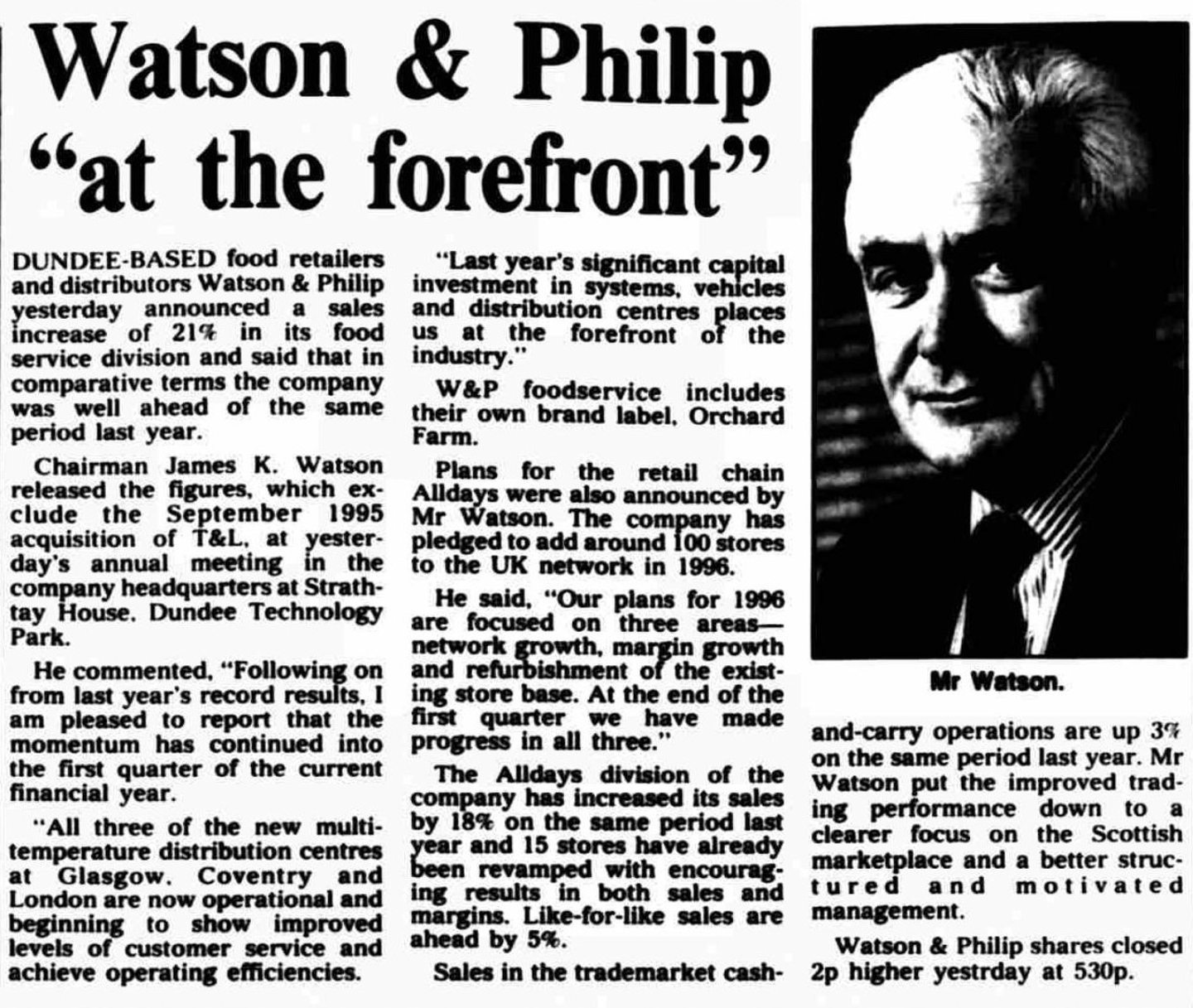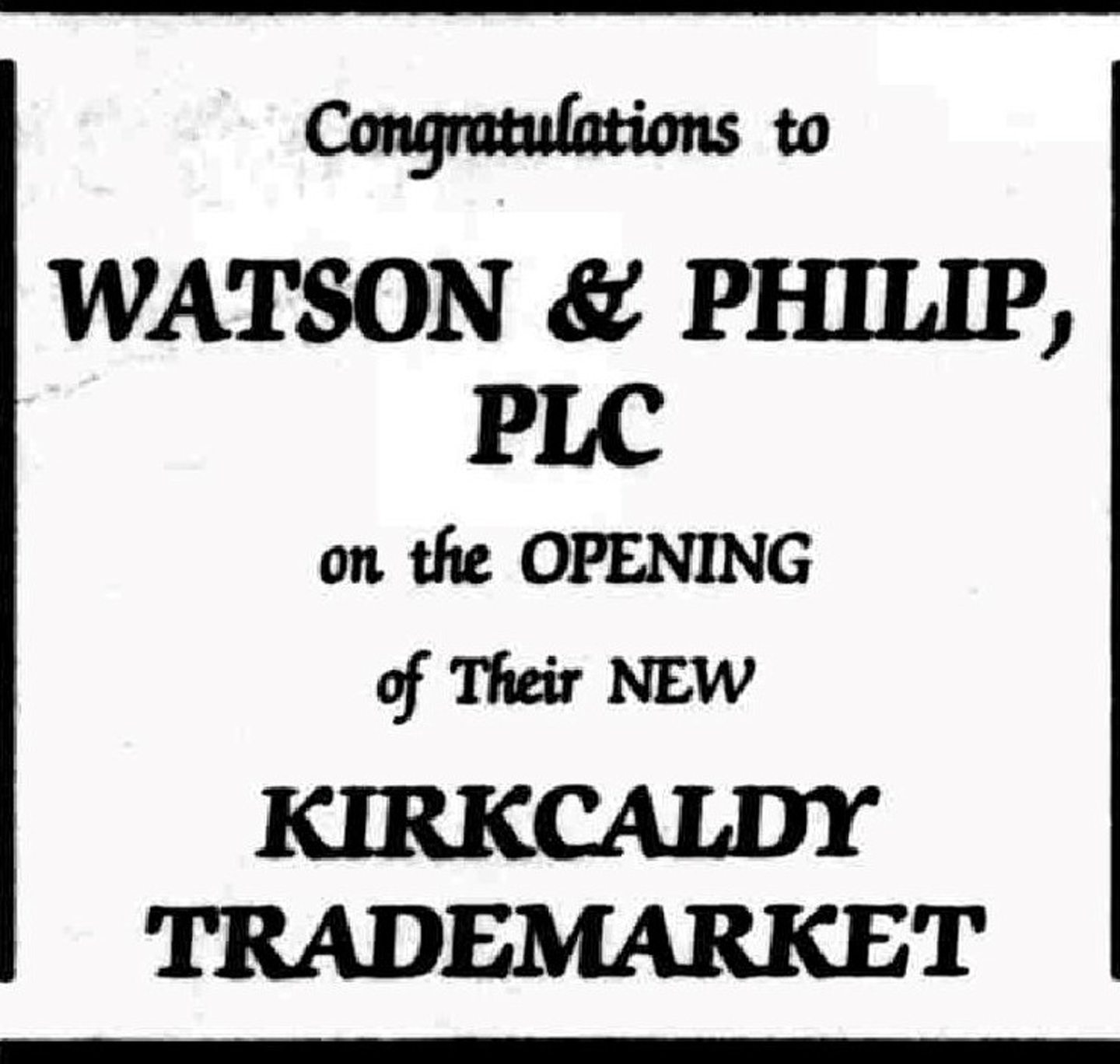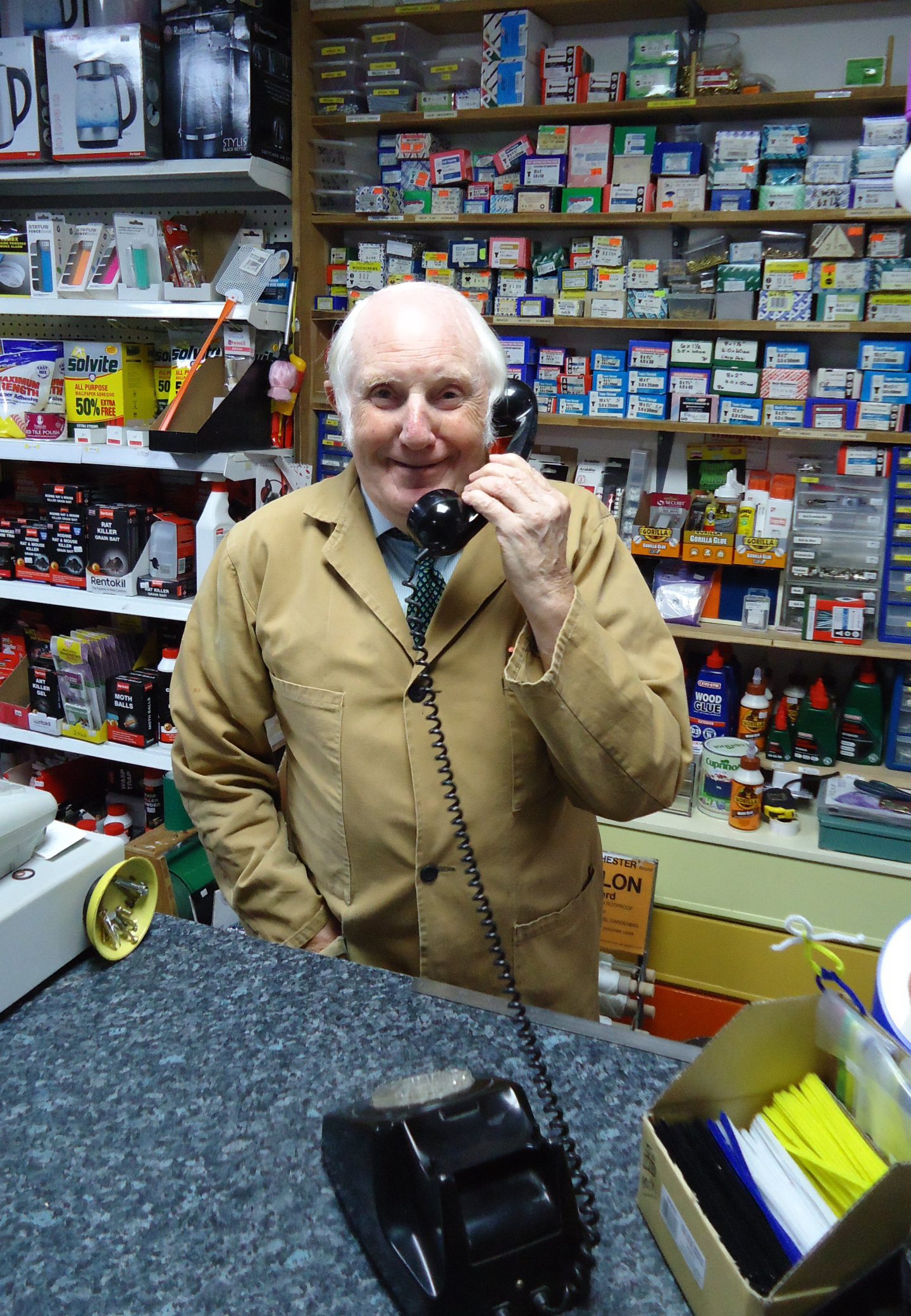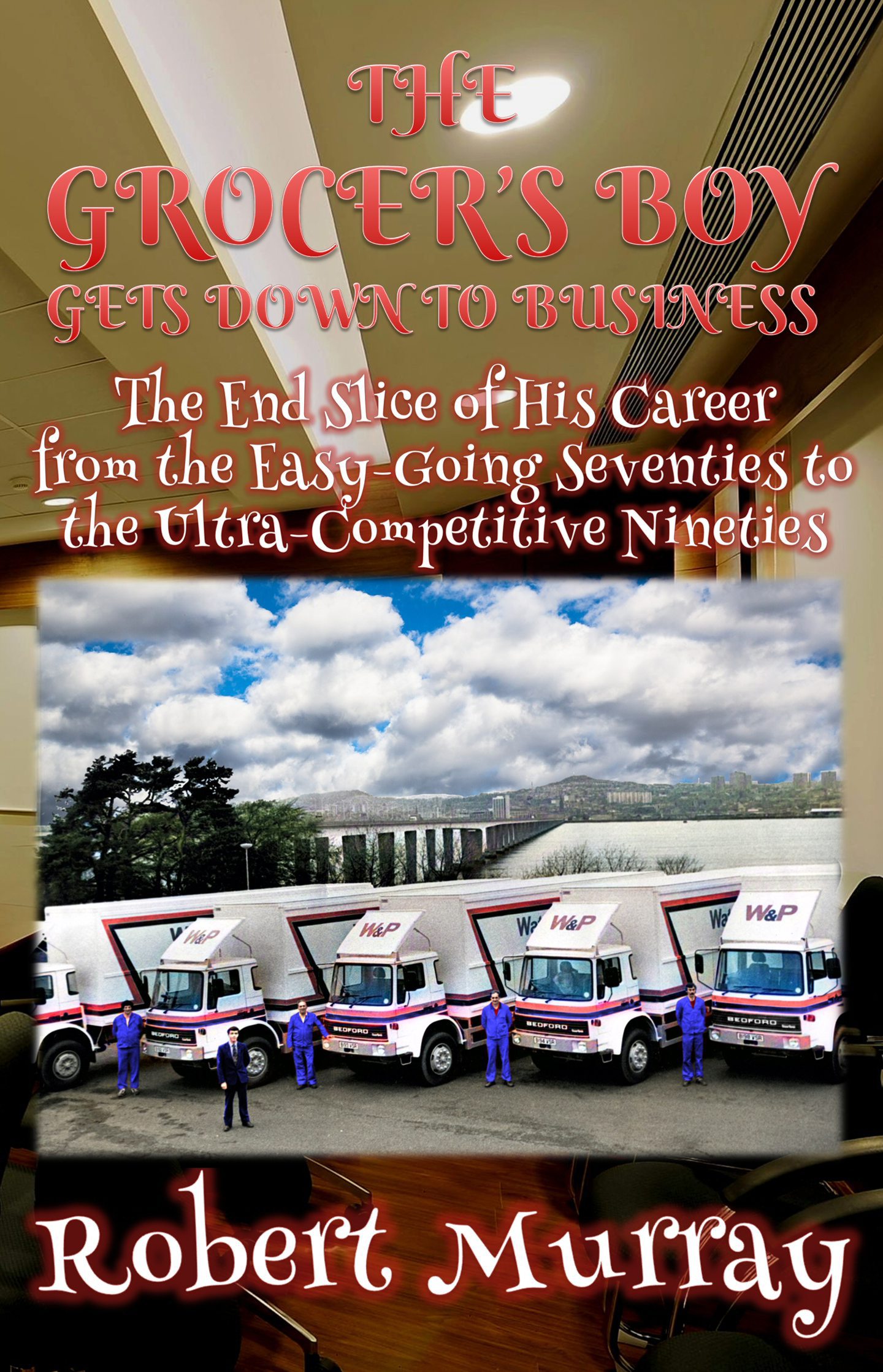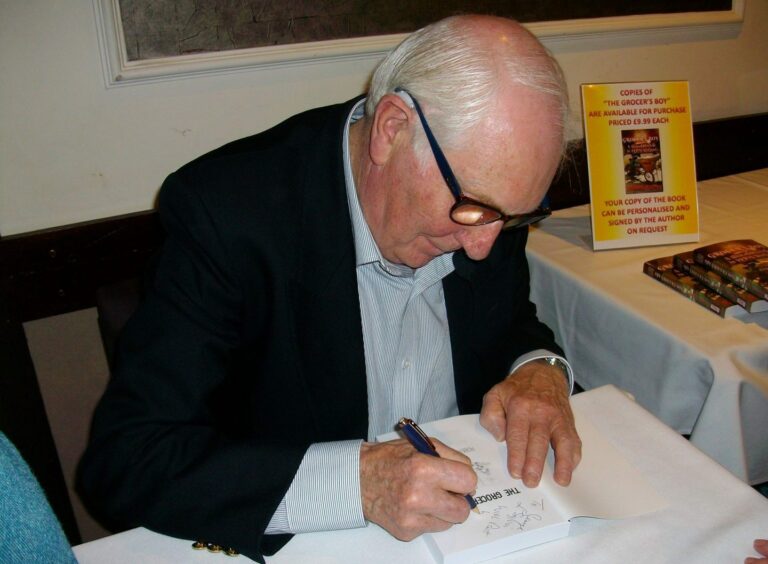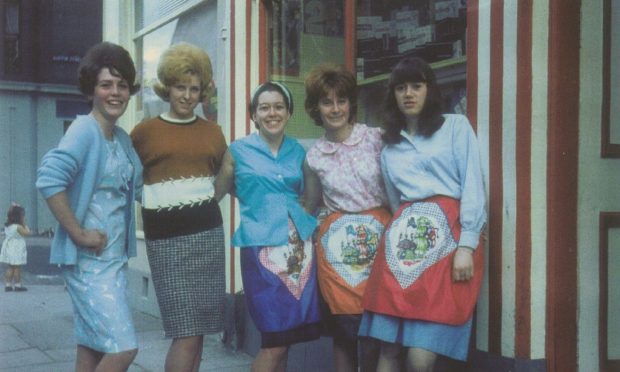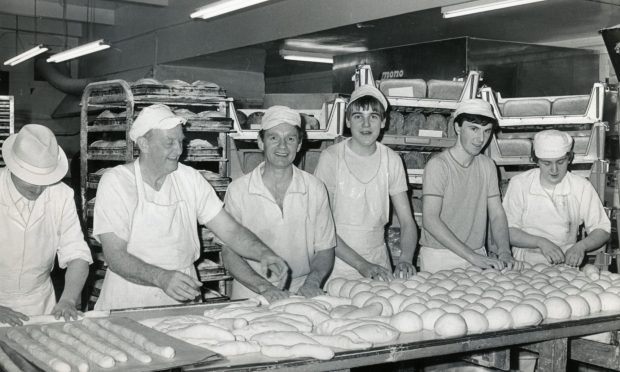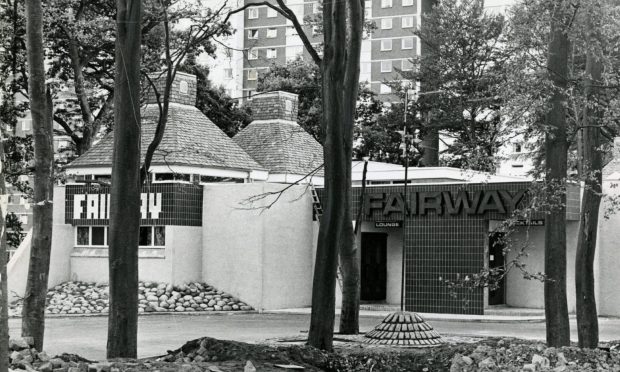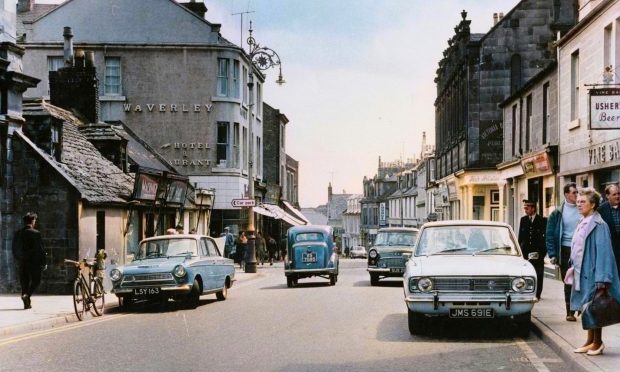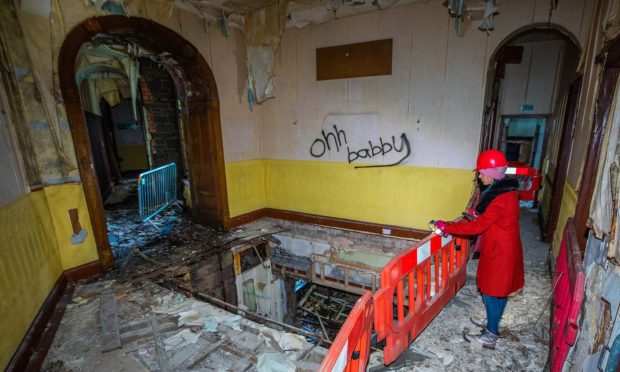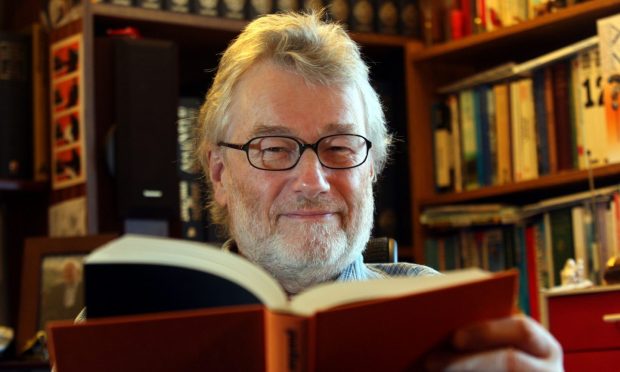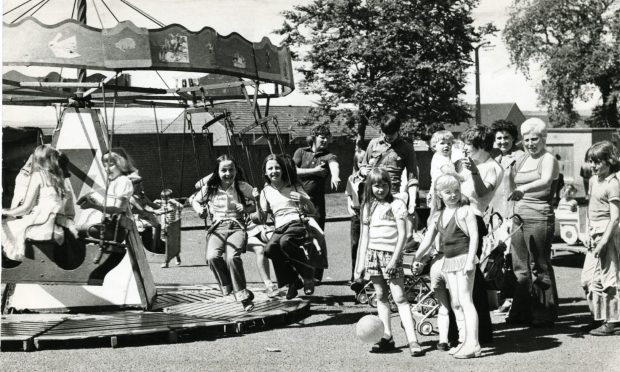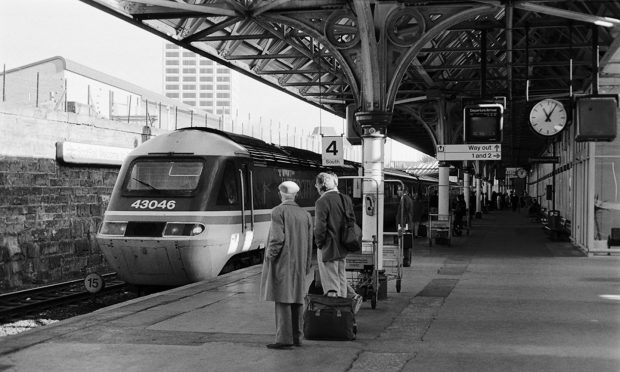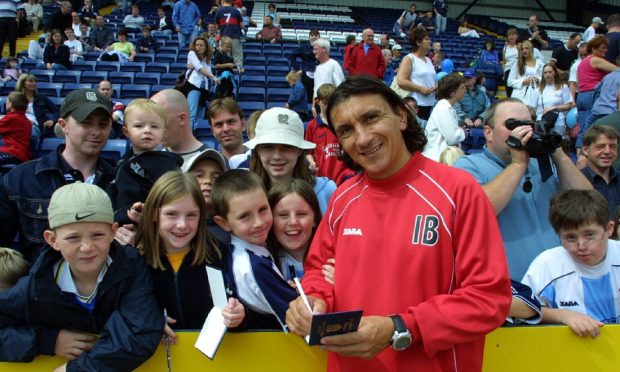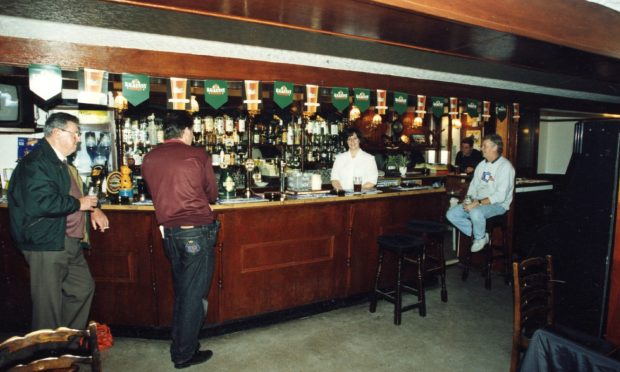Robert Murray was the real-life Granville who has served up another slice of nostalgia for the glory days of Dundee’s grocery stores.
The Carnoustie man was Open All Hours from the 1960s to the noughties after rising from grocer’s boy at William Low to personnel manager at Watson & Philip.
His memories of shop life through the decades were enough to fill a book – or three!
Mr Murray, now 81, has released the latest in his series of memoirs, which has given him the chance to look back at how it all began back in 1952.
Life as an apprentice grocer
“When I started out as an apprentice grocer in 1952, we didn’t have any fridges,” he said.
“We had no way of keeping things chilled.
“We used to put a sheet of muslin over the products over the weekend, but we’d always come back and see that the butter had melted on the shelves.
“The eggs were displayed in the windows and sat there over the weekend on hot sunny days.
“It’s amazing we didn’t find any chickens running around on Monday morning when we opened the door!”
Mr Murray began his days in the grocery trade by working for William Low & Co. Ltd.
Affectionately referred to as “Willie Low’s”, the supermarket chain began in Dundee with a couple of popular stores.
It was hard work and elbow grease by the likes of Mr Murray that helped keep the business running in the ’50s.
“I was 12 years old when I first started working for Willie Low’s.” Mr Murray said.
“Back then, hardly anything arrived in packaging.”
“I remember the sugar used to come in on the back of a lorry in 200 weight bags.
“Two tonnes of it, and we had to shovel it into one- or two-pound bags!
“It used to take hours and hours.
“The labour that went into weighting out bags of sugar was really silly.”
But the effort was appreciated by many at the time.
The individual treatment that each customer received as the grocers weighed out their specifically requested amount allowed for social interaction in a way that online shopping does not.
The grocers’ became the social hub of the community as customers could catch up with their sellers and with each other.
Not only was he an apprentice in the days before pre-packaged goods, he also remembers the great fridge-freezer experiment…
He said: “We got a deep-freeze with two products at first, as an experiment.
“We had fish fingers and peas.
“I remember the housewives saying ‘this’ll no tak on’!”
But were they right?
Mr Murray remembers: “It sat there for two or three years but nobody bought anything!
“The packets became dog-eared. People would pick them up and look at them, but they never took anything home.”
But even these difficult moments are remembered fondly.
He added: “These are the laughable moments that I look back on; when we tried to come to terms with things becoming more modern.”
When change started in the 1960s, it started happening fast, and not just for Mr Murray.
He said: “After some time as an apprentice grocer, I found myself eventually becoming a manager of some Willie Low’s shops.
“I had three branches in Dundee.
“They were on Brantwood Avenue, Logie Street, and Perth Road.
“At the age of 23, I was managing three shops.
“But the world was changing.”
The beginnings of self-service
He added: “As a manager it was a very nervous time.
“We didn’t have checkouts with barcodes, we had individual people working on basically what were adding machines.
“And there was no record, no way of knowing what goods were going out, what was being paid for, what wasn’t.
“So, the new world of self-service was a bit nerve-wracking.”
Mr Murray made the move to Watson & Philip in the late 1960s.
The retail grocery store company was formed in 1873 and was still family-owned by the time Mr Murray joined its ranks in 1969.
Starting as a training officer, Mr Murray remembers his early days at W&P being a slower time, when things were relatively quiet.
These halcyon days were the beginning of his 33 years with the company.
He said: “One of the things I remember most about Watson & Philip was actually our lunchtimes.
“We had a canteen; it was amazing how the canteen became a focal point in life.
“The things we said, the thing we chatted about… it was a quiet life in the 1970s.”
Mr Murray continues: “Over the decades, the business grew.
“The way to keep the city happy was to acquire more businesses.
“So we took over some ‘cash and carry’ stores and ended up supplying pubs, clubs, and restaurants with its produce.
“And then we started catering and began to supply hotels, schools, and hospitals too.”
Changing times
As the years went on, the days of white grocer’s coats and the sounds of the register’s bells ringing became distant memories.
Mr Murray remembers the first time he introduced barcodes into his stores, and the battle of trying to encourage his shops to get with the times and modernise themselves.
In a rapidly changing society, the shops had to change too and constantly come up with new and innovative ways to sell their goods.
Watson & Philip was able to keep going.
But what was it that kept them selling?
Mr Murray said: “We had some really great team spirit.
“I think it came from the family, who still owned and ran the business.
“We had loads of people with long service, we didn’t lose people, and that became one of the defining features of the company.”
However, the success of Watson & Philip wouldn’t last forever.
After acquiring a series of Spar stores in Aberdeen, the company rebranded itself as a retail grocery store and soon had shops all over the UK.
But that development was ultimately the end of the business.
Mr Murray recalls: “Things moved too quickly.
“The business collapsed in 2002.
“What was supposed to be a profitable move for us ended in tragedy.
“That was the end of Watson & Philip in Dundee.”
Or was it?
Certainly not the memories, at least.
Twenty years on, Mr Murray releases his third book about his time as a grocer’s boy – this one focusing entirely on his time at Watson & Philip.
He’s dedicated it to all former employees.
Mr Murray said: “I didn’t set out to write a story about Watson & Philip.
“But having written the first two books, I was encouraged by the publisher to try to write something about what life was like in the wholesale grocery business during the ’60s, ’70s, ’80s, and ’90s.
“So, my third book traces back to how the company started in 1873, and how it’s developed since that time.
“But I also shared my own memories of my time with the company.
“So it’s really two stories in one; my personal story, within the Watson & Philip story.”
Gone but not forgotten
It’s a story with a significant audience, with Mr Murray recounting that there is still a strong love in the city of Dundee for the old retailers.
He said: “I organised one or two reunions for Watson & Philip.
“In the first reunion we had, a way back, about seven or eight, nine years ago, nearly 100 people turned up!
“All these years after the company had folded, and 100 people turned up at Angus Hotel just to see each other.
“I sense there’s still a sense of loss about the company, how it fell apart, how it diminished and finally died.”
Yet another reunion, of sorts, will be held on May 31, when Mr Murray’s book launch is held in the Central Library.
He added: “I have a feeling the launch is a bit of a reunion.
“I think there will be quite a few Watson & Philip people there, people who worked for the company for many years.
“I think there’s still a high degree of nostalgia, and loss, about losing Watson & Philip.
“I’d be delighted to see as many of my former colleagues there as possible.”
- Robert Murray’s third book, The Grocer’s Boy Gets Down To Business, will be released on May 31 and can be purchased on Amazon.
- To attend the book launch, free tickets can be booked by phoning the Central Library on 01382 431539.
More like this:
From Transformers to Toy Story: Remembering Dundee toy shops of Christmas past
Remembering the lost shops of Dundee’s iconic Keiller Centre
